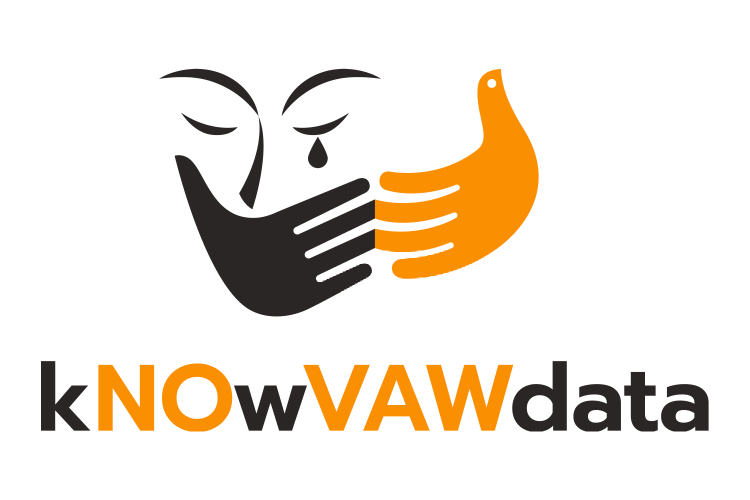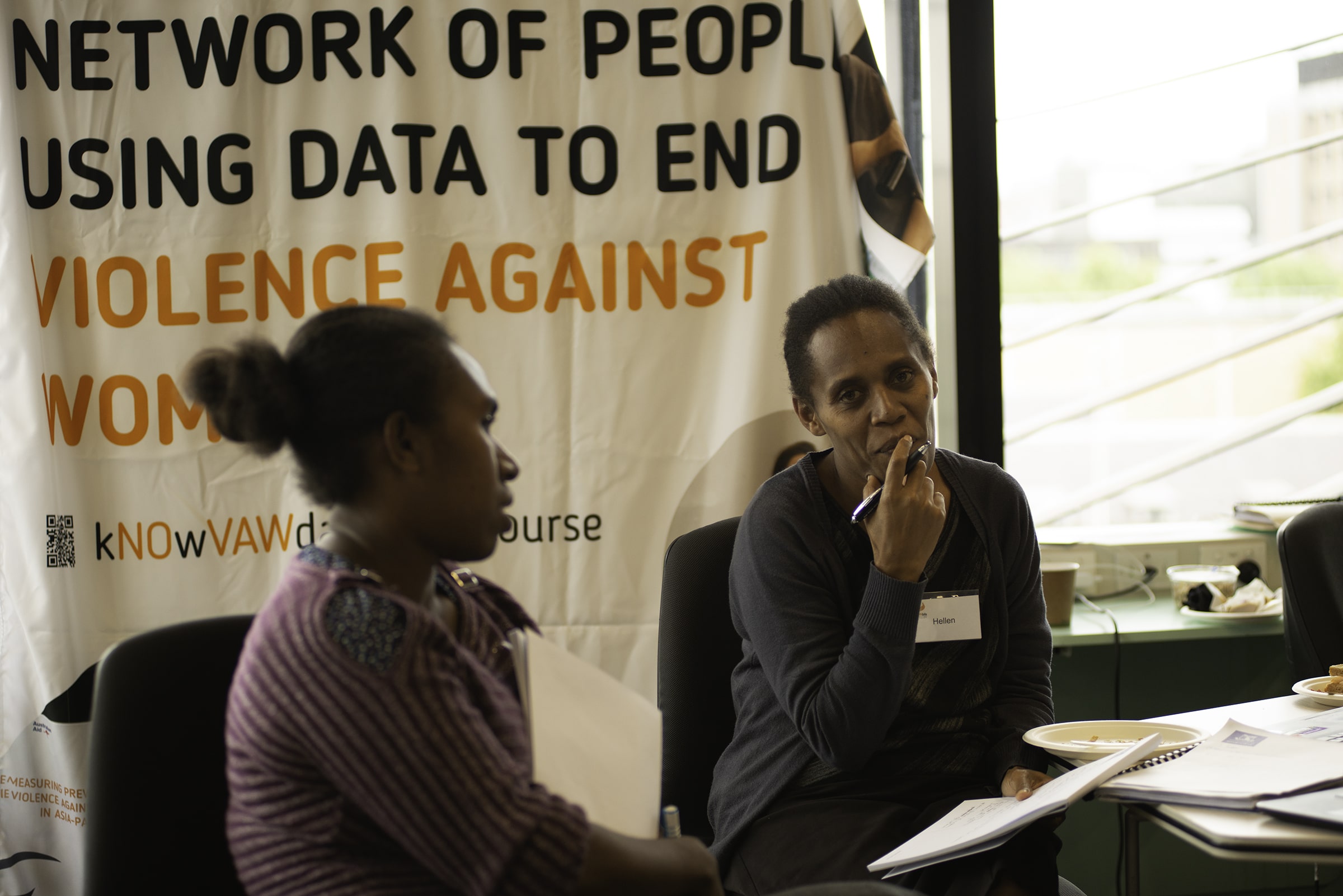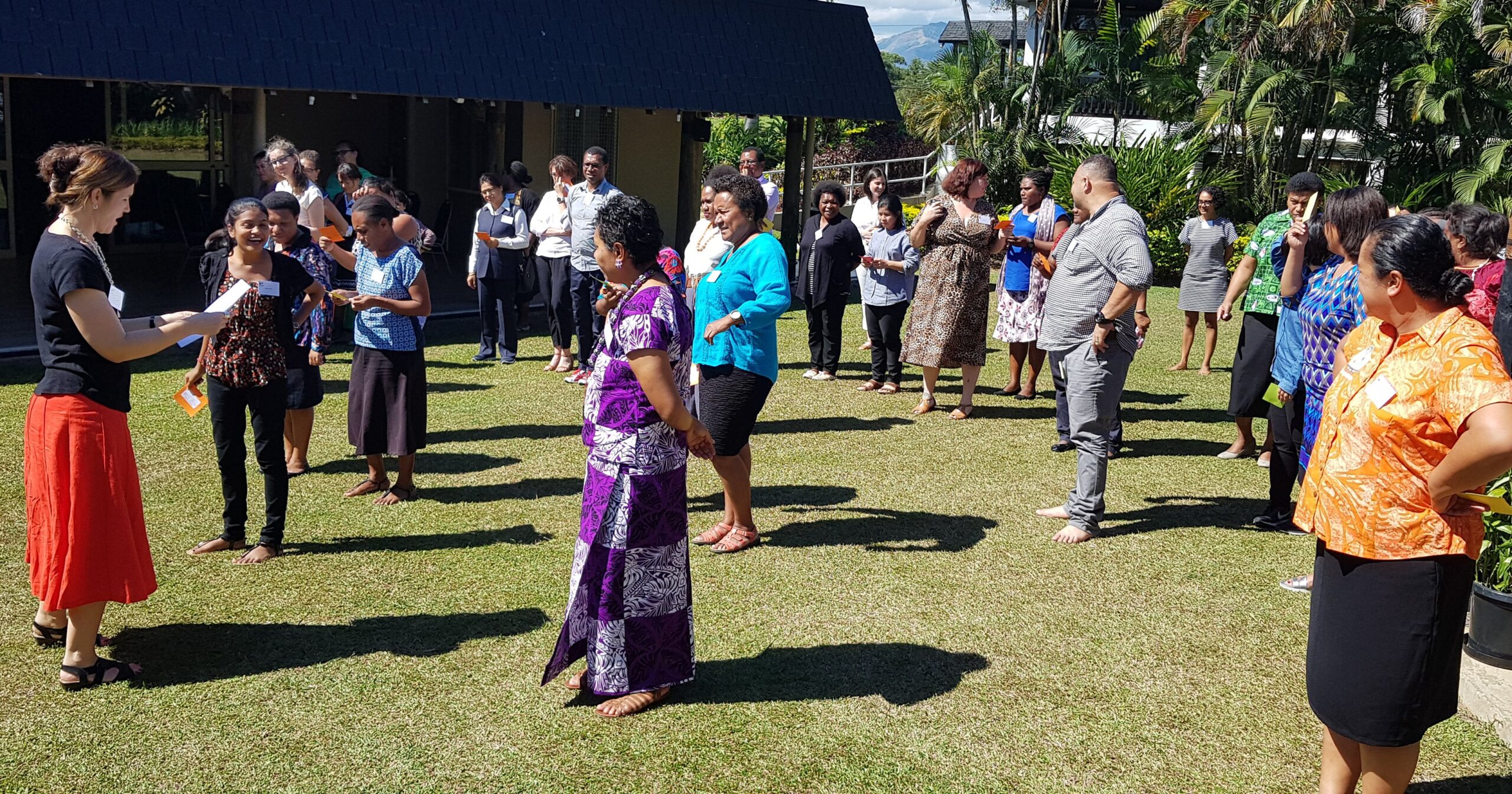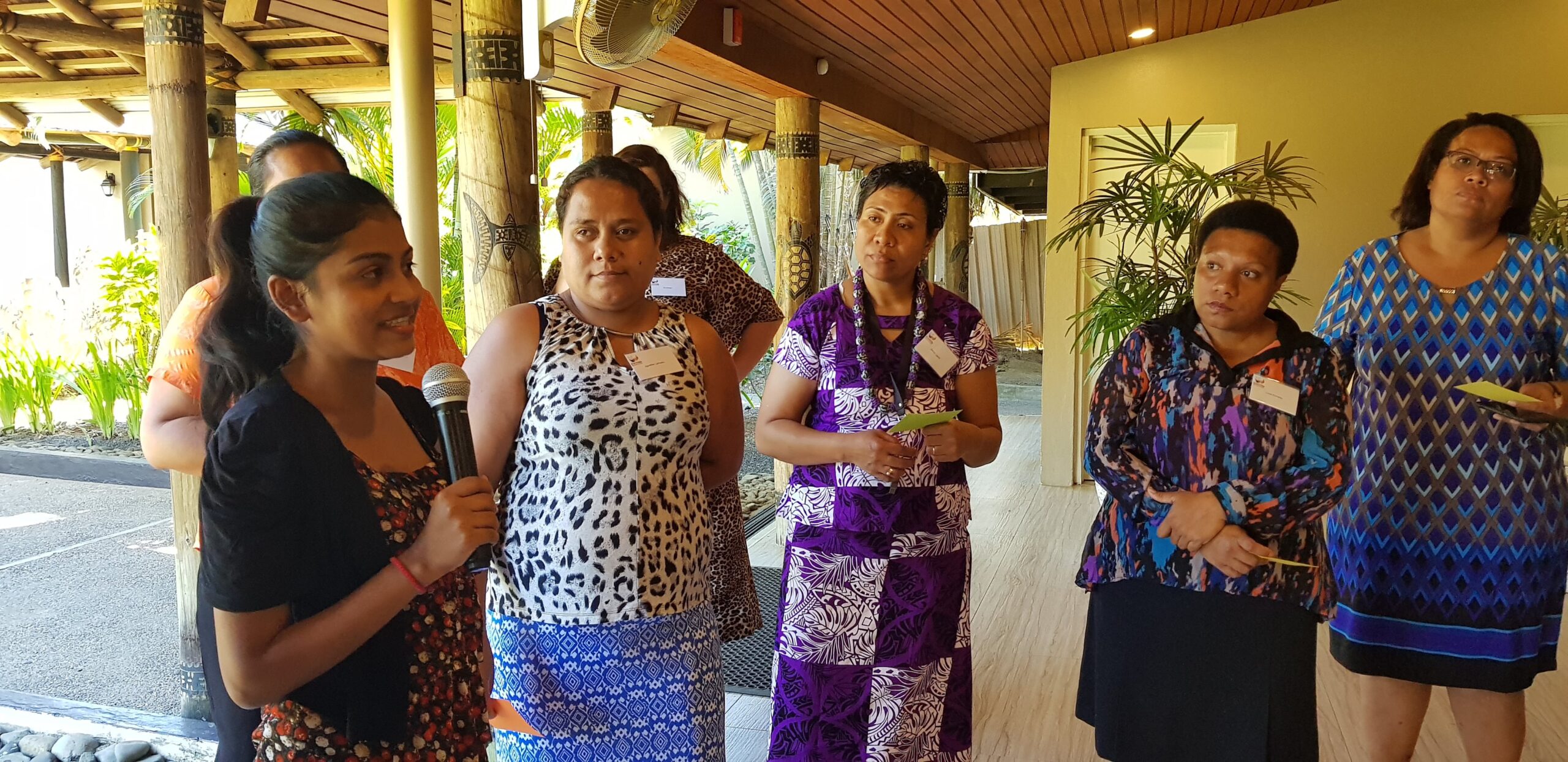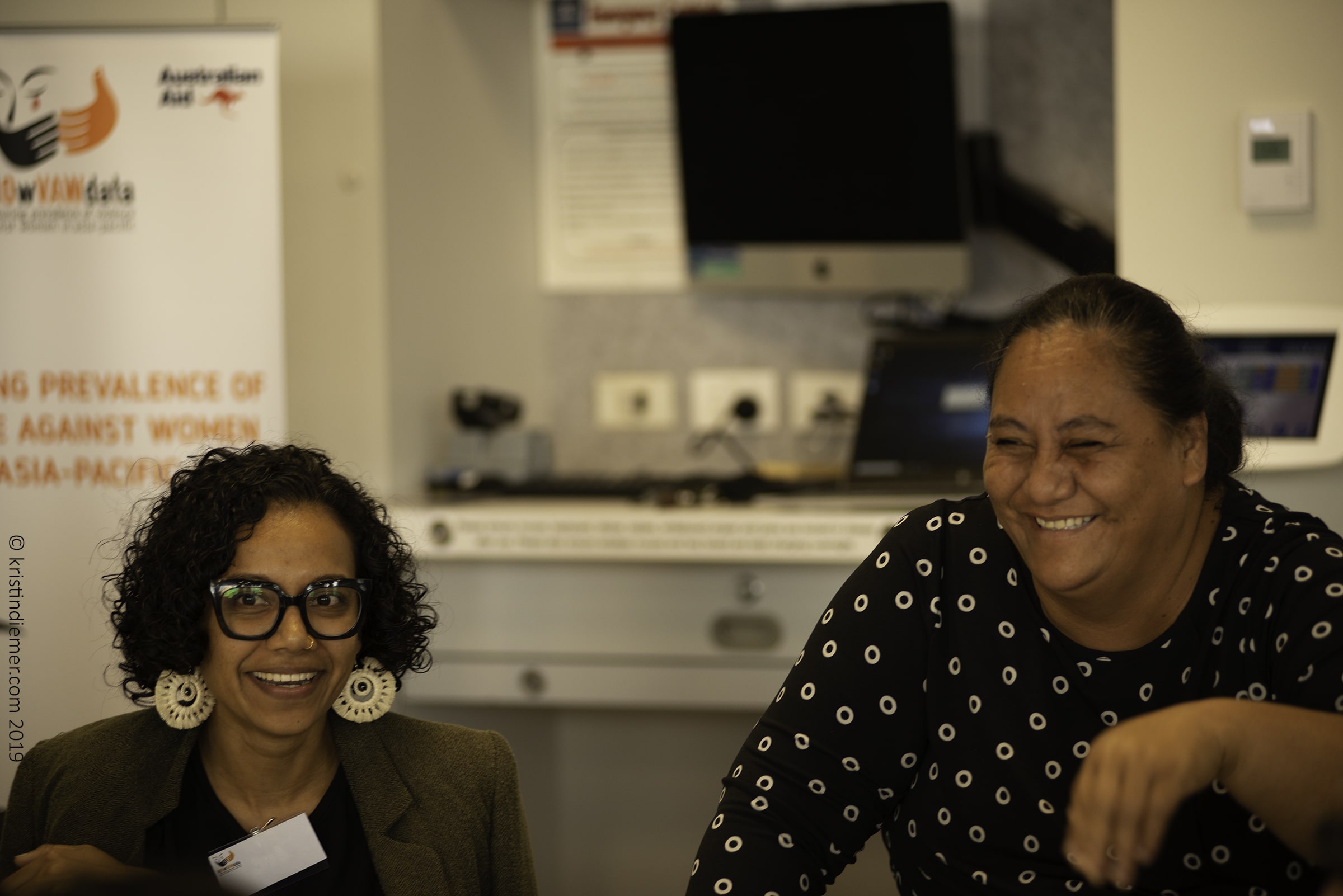Face-to-face Course
The kNOwVAWdata face-to-face training course is an expert-led short course to develop skills and knowledge in data collection, analysis, and communications to inform interventions to end violence against women.
The course is conducted as a series of four modules. Each module builds on the one before and therefore participants need to commit to the full program.
All participants receive a professional development certificate awarded by the University of Melbourne on completion of the course.
The greatest benefit of the kNOwVAWdata course is the live critical conversations, peer-to-peer learning, and the formation of supportive, collaborative professional relationships. Our past participants continue to support one another post-course.
For the 2025 course we have 15 full-fellowships for applicants from the following countries within Asia and the Pacific:
- Pacific: Federated States of Micronesia, Fiji, Kiribati, Marshall Islands, Nauru, Palau, Papua New Guinea, Niue, Samoa, Solomon Islands, Tonga, Tuvalu, Vanuatu and Wallis and Futuna.
- Southeast Asia: Cambodia, Indonesia, Lao People’s Democratic Republic Malaysia, Myanmar, Philippines, Thailand, Timor-Leste and Viet Nam
- South Asia & Middle East: Bangladesh, Bhutan, India, Maldives, Mongolia, Nepal, Pakistan and Sri Lanka
For information contact knowvaw-program@unimelb.edu.au.
We collect and process personal data in a non-intrusive, lawful and fair way. We only collect personal data that is necessary for the purpose required and directly from you wherever possible. For more information go to: https://about.unimelb.edu.au/strategy/governance/compliance-obligations/privacy/privacy-statements/general-privacy-statement
Format
Face-to-face,
in-classroom,
on location
Course Duration
In 2025 the course will run over 4 weeks.
Plus pre- and post-course preparation activities
Location
Melbourne, Australia
Fees
$3,000 USD or
$4,800 AUD (excl. GST)
More information about fees below
Course Dates
27th October – 21st November 2025
Apply (Australia Awards Fellowship)
Applications closed.
Apply (General)
Applications open now.
Online course: Looking for an online course delivery format? Find out more about the Online Course option, or keep reading below to learn about the face-to-face course.
Fees (2025)
$3,000 USD or
$4,800 AUD (excl. GST)
Discounted full course fee per person.
Payment is due after acceptance to the course and before the course begins.
At times we have access to a limited number of full and partial equity-based scholarships for people from LMICs.
In 2025 we have 15 full Australia Awards fellowships available for people from the countries listed above.
Fees include:
- Participation in the full face-to-face training intensive delivered by University of Melbourne researchers and national and international guest lecturers
- Access to an online learning portal and all course materials
- 4 hours of post-course mentoring and support
- Post-course membership of the online community of practice for measuring violence against women
Fees do not include:
- Passport
- Visa fees
- Airfares
- Travel insurance
- Medical preparation
- Local transport costs outside of course or travel for personal reasons during course
- Breakfast, dinner and accommodation costs (lunch, morning tea and afternoon breaks will be provided on days of the course)
Where do the course fees go?
Development of the kNOwVAWdata face-to-face and online courses were supported by UNFPA with funding from the Australian Department of Foreign Affairs and Trade (DFAT). The program has been designed to ensure the course is self-sustaining so that donor funds are not required long-term, and that the course can be continually updated.
Participant fees are charged at the minimum amount for the program to be self-sustaining and reinvested to cover:
- teaching salaries
- ongoing development of the course and course materials, including contribution from international experts and previous course participants
- coaching of local and regional leaders to become mentors and teachers in the course
- localising course mentorships
- development of additional modules
Curriculum Overview
The full course will be delivered over four modules, with participants attending face-to-face for three weeks. A summary of the course content is below, however much of the flow and specific day-to-day content will be driven by the participants. While instruction on running prevalence surveys is central to the course and will not change, some of the components may be tailored to suit the cohort’s needs. For example, if participants are particularly interested in measuring VAW with disabilities, then more sessions may be dedicated to this. The course covers the following:
Module 1: Introduction to key concepts and forms of data for researching violence against women
This introduction will provide the ground work for preparing to measure VAW. It includes: understanding of key concepts such as sex and gender, understanding the data on VAW countries might already be collecting and how it can be used, developing appropriate research questions and choosing methodologies to measure and respond to those questions, as well as preparing a national research strategy on VAW.
Module 2: Planning and implementing a survey to measure the prevalence of violence against women
This module will focus on planning and implementation of prevalence surveys: from choosing and modifying a survey methodology (eg WHO or DHS module), budgets, preparing a research protocol, ethical and safety protocols, sampling strategies, planning for fieldwork, enumerator training and a mock survey trial.
Module 3: Beyond prevalence surveys, other ways of measuring violence against women
In this module, participants will explore data collection on VAW beyond prevalence surveys. This includes other measurement methods such as qualitative research, but also exploring ways of reaching populations not usually included in more traditional quantitative and qualitative methods. This will encourage participants to consider measuring VAW among particularly vulnerable communities. We will also cover data management and analysis in preparation for module 4. For those who are interested, sessions on data analysis for SDG reporting will be offered.
Module 4: From data to action: Interpreting and reporting on violence against women for policy and practice
In module 4, we’ll take participants through the phases of reporting, from initial data examination to conducting consultations with stakeholders and special interest groups, data analysis, interpretation and appropriate presentation. We’ll look at specific ways to draw from data to create action, including promotion of key messages, managing resistance, reviewing national policies in the context of the data, as well as ways of looking forward.
Download an example of the kNOwVAWdata face-to-face course curriculum
Hear from our students
Gina Houng Lee
2021 course participant, Fiji
Hear from Gina Houng Lee, one of our alumni course participants, talk about her experience and what she gained from the kNOwVAWdata course.
2019 Course Photo Gallery
How to Apply
Applications for the next face-to-face course are now open. To apply for the course, click the link below. Alternatively, to lodge a paper application, please complete this form and return it to knowvaw-program@unimelb.edu.au.
For any questions or enquiries, complete the course enquiry form below.
Course Enquiry
Have a question about the face-to-face course? Leave us a message below and we’ll get back to you.
